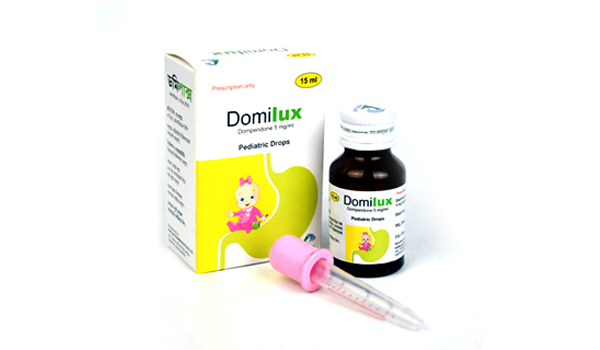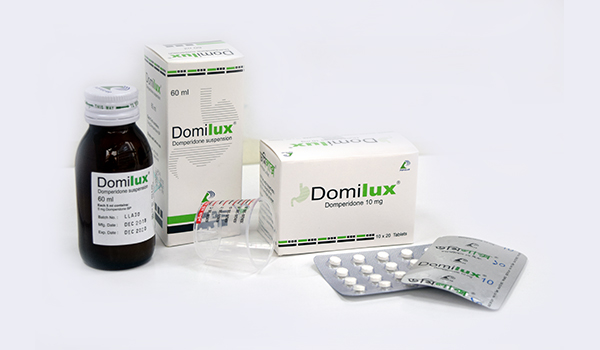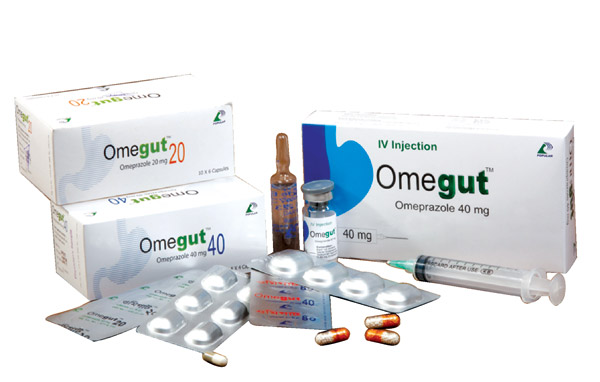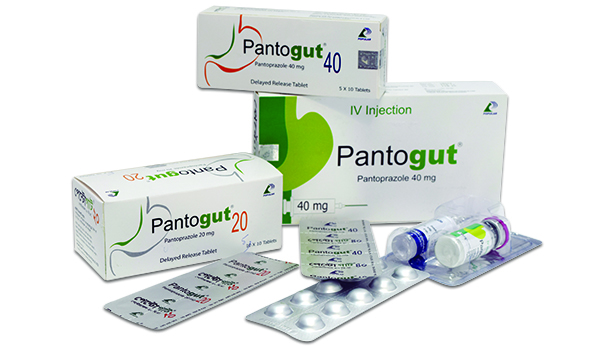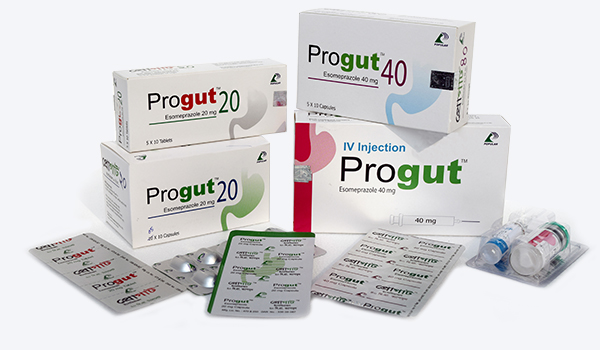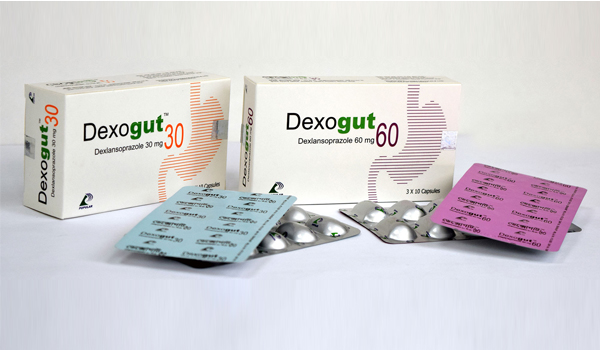Indication
1. Dyspeptic symptom complex, often associated with delayed gastric emptying, gastroesophageal reflux and esophagitis:
? Epigastric sense of fullness, feeling of abdominal distension, upper abdominal pain
? Eructation, flatulence, early satiety
? Nausea and vomiting
? Heartburn with or without regurgitations of gastric contents in the mouth
? Diabetic gastroparesis
? Non-ulcer dyspepsia
2. Acute nausea and vomiting of the functional, organic, infectious, dietetic origin or induced by radiotherapy or drug therapy or induced in migraine.
3. Parkinson's disease: In dopamine-agonist induced nausea and vomiting.
4. Radiological studies: Speeding barium transit in follow-through radiological studies.
Dosage & Administration
Domperidone should be taken 15-30 minutes before meals and, if necessary, before retiring.
The usual recommended oral dose of Domperidone is as follows:
? Adults: 10-20 mg (1-2 tablet or 10-20 ml suspension), every 6-8 hours daily. The maximum dose of Domperidone is 80 mg daily.
? Children: 2-4 ml suspension/10 kg body weight or 0.4-0.8 ml pediatric drops/10 kg body weight, every 6-8 hours daily.
In dyspeptic symptom:
? Adults: 10-20 mg (1-2 tablet or 10-20 ml suspension), every 6-8 hours daily.
? Children: 0.2-0.4 mg/kg (2-4 ml suspension/10 kg or 0.4-0.8 ml pediatric drops/10 kg) body weight, every 6-8 hours daily.
In acute and sub-acute conditions (mainly in acute nausea and vomiting):
? Adults: 20 mg (2 tablets or 20 ml suspension), every 6-8 hours daily.
? Children: 0.2-0.4 mg/kg (2-4 ml suspension/10 kg or 0.4-0.8 ml pediatric drops/10 kg) body weight, every 6-8 hours daily. (In acute nausea and vomiting maximum period of treatment is 12 weeks).
Precautions
Domperidone should be used with absolute caution in case of children because there may be increased risk of extra-pyramidal reactions in young children because of an incompletely developed blood-brain barrier. Since Domperidone is highly metabolized in liver, it should be used with caution in patient with hepatic impairment.
Use in Pregnancy and Lactation
The safety of Domperidone has not been proven and it is therefore not recommended during pregnancy.
Domperidone may precipitate galactorrhea and improve post-natal lactation. It is secreted in breast milk but in very small quantities insufficient to be considered harmful.
